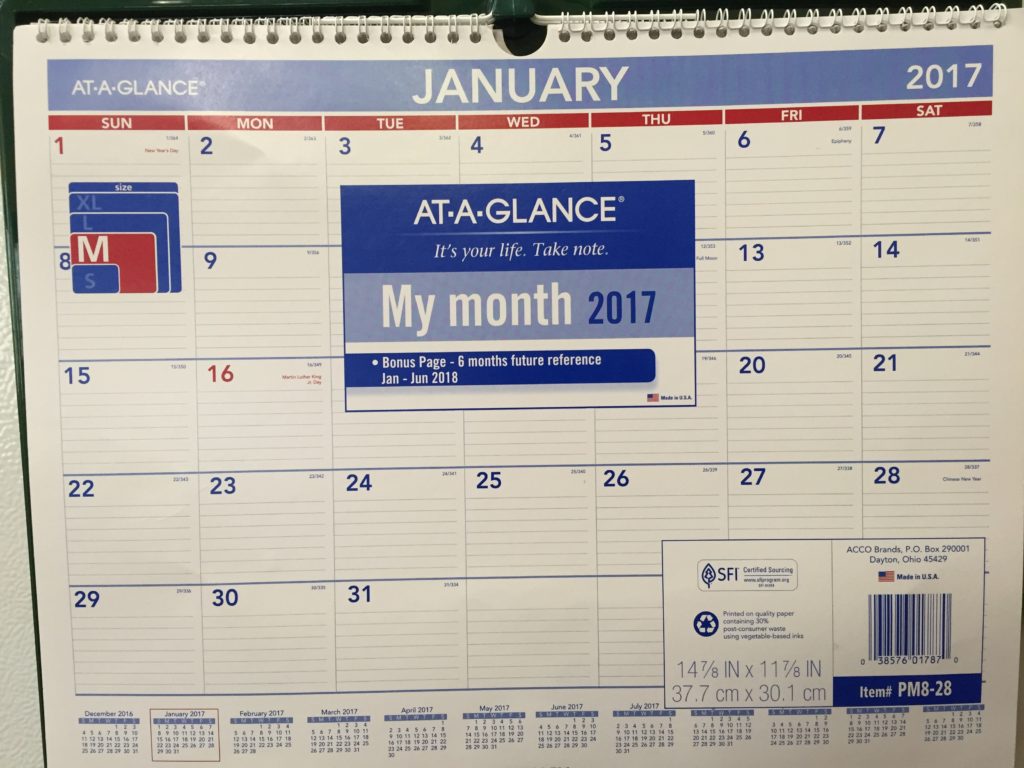Could anyone tell? Would anyone know by what we say and do that we are a Christian? Is the evidence clear? Would the testimony by those who see and know us be enough? Could there be any doubt that we would be convicted of being a Christian by what we say or do?
Jesus said in John 13, “A new command I give you: Love one another. As I have loved you, so you must love one another. By this everyone will know that you are my disciples, if you love one another.”
After another disappointing interaction with someone recently, I wondered, once again, why. Why do they do that? Why do they seemingly go out of their way to irritate, annoy, manipulate, exasperate, needle, provoke, hassle, and aggravate? I asked one time years ago and received this answer. This person said that they did it because they liked to see me “fired up.” Like poking a smoldering fire to see the flames leap high into the air, this person thought it was fun to ‘stir me up and watch how I reacted.’ They didn’t see or care about the pain or fall out I felt by their words. It was just fun at my expense for them. They seemed to particularly enjoy ‘stirring me up’ or embarrassing me in the presence of others. They could almost always predict by their triggering words and actions how I would react. You see, as a child in my particular family of customs and culture, I learned with a look or a word to immediately ‘hop to.’ I also knew exactly ‘how high’ to jump with the commands of a somewhat sadistic dad. I was programmed from an early age to act, react, and obey without thinking an autocratic and domineering father.
Repeated childhood traumas trained self-preservation behavior patterns deep into the heart of my autonomic nervous system geared to avoid conflict and to protect myself, my mother, and my siblings from harm. Like the training to ‘stop, drop, and roll’ in response to being on fire that I learned as a child, my young brain was programmed to react to certain triggers and stimuli to prevent what I saw as imminent danger of physical and emotional harm up to and including my death or that of others at the hands of someone who should have been my chief protector. As the oldest child, I felt a need to protect my younger siblings and even my mother. My mother often seemed passive and un-protective of us, but perhaps as an adult looking back now, she understood better how to deal with someone drunk and out of control. It was a stressful and traumatic life to lead as a child. It can be hard on an adult also.
Fortunately, most can’t fathom a childhood like this, but I lived it. It is a part of the brokenness in this world brought on from the beginning with the desire of men and women to be their own authority and their own gods – often joyfully and decisively rejecting the authority of the loving Creator God, who is Sovereign of all. Sin and acts of selfishness are the results of our rejection of God. A wake of human brokenness and tragedy lasting for generations to include both physical harm and spiritual death is the outcome of mankind’s treason toward a loving God and Father of all that live.
So what is the point? Why do I share this sad and even to my eyes personally depressing tale? The reason is simple. In a life that is so rushed and hurried where we scurry to get from here to there for our businesses, pleasures, goals, and pursuits, I want us to STOP.
Please let’s just STOP for one moment and think. It won’t take long. Did you know that a sprinter responds to the crack of the starting gun for their race in less than 150 milliseconds? That’s half the time it takes to blink an eye.
In that brief millisecond moment of meeting someone – anyone, please just STOP for a moment, and think about how you can be kind and encouraging in your words and deeds.
STOP the “gotcha” stuff and “put down” talk.
STOP the “mean girl and guy” juvenile junior high behavior that demeans and demoralizes.
STOP ignoring the person who shyly says “Hi!” when passing by. It won’t kill us to smile and say hello back.
STOP picking at people just to get a rise or reaction out of them to amuse ourselves or others.
STOP contributing to the cancel culture.
STOP gossiping. They know when people are talking about them and that what is said isn’t nice.
STOP listening to divisive rhetoric that would have us tearing one another and our society down instead of building up.
STOP making others feel less than. We don’t need it. Some can’t bear it, and there is no good reason for it.
Many of us have already been told hundreds of times that we are less than worthless and not enough. We know we are full of fault, sinful, and can’t do it all right. We see our flaws and foibles better than anyone. We know we aren’t in the “in” crowd. We see that some don’t think we are pretty enough, smart enough, or “hip” enough to be in the group. We need a hand up – not a put down.
The evidence of the problem is clear all around us. Our society is crumbling and crime is rampant. Drug abuse for legal and illegal drugs is on the rise all across our nation for those seeking to medicate their pain and numb their feelings of rejection and trauma. Suicide rates are out the roof, especially for our young people. Many parents today are so wrapped up in themselves and their screens, that they can’t or won’t see the needs in their children right in front of them. Children too young to process what they are seeing and hearing are being swept into an abyss of an atheistic and hedonistic society through the internet, television, movies, and in what they experience in their home lives.
Did you know that there is a report of child abuse every 10 seconds in the United States? That’s 6 times a minute and 8,640 times in a day. In a recent continuing education training, I learned that there are over 1,100 reports of child abuse per month in our local area. Less than 25 of those cases ever come before the courts for prosecution. That’s less that 2/10ths of one percent of the reported cases of child abuse that have any chance at all of discipline or consequences to the abusers and of protection for the children. Many, many people are hurting.
Some of the broken children and adults have found hope, love, and life in Jesus Christ. We have experienced the grace and mercy of a loving, heavenly Father God, but oh, so very, very many people haven’t yet. They don’t know God, see their value, or know that they have been made in God’s own image. They don’t have any real hope. Many are just lost and can’t see any useful purpose for their lives.
With all this in mind, please just STOP. Don’t make things worse with thoughtless words and deeds. We don’t need any more negativity and narcissism.
Romans 12:16 says, “Live in harmony with one another. Do not be haughty, but associate with the lowly. Never be wise in your own sight.”
STOP for just a moment and think before you say something to someone – to anyone. Remember that God gave His one and only Son for that person right there in front of you.
I Peter 4:8 says, “Above all, keep loving one another earnestly, since love covers a multitude of sins.”
I know you are busy. I know you have things to do. We all do, but the next time you meet someone, blink your eye and STOP. Take that millisecond moment to think about the precious and dearly loved souls in the people before you in that moment.
God loves them. Will you? God knows they need someone to love and care for them. Will you? Jesus laid down His life for them. Would you?
In that millisecond moment before you say or do anything, will you STOP and consider how to build up and encourage? We don’t know what the person there before us deals with at home or at work each day. We don’t know how close someone might be to just giving up. Words are powerful. With words, God made everything both seen and unseen. Our words are powerful, too!
Proverbs 18:21 says, “Death and life are in the power of the tongue, and those who love it will eat its fruit.”
Proverbs 16:24 says, “Kind words are like honey – sweet to the soul and healthy for the body.”
Proverbs 12:25 says, “Anxiety in a man’s heart weighs it down, but a good word makes it glad.”
Ephesians 4:29-32 says, “Do not let any unwholesome talk come out of your mouths, but only what is helpful for building others up according to their needs, that it may benefit those who listen. And do not grieve the Holy Spirit of God, with whom you were sealed for the day of redemption. Get rid of all bitterness, rage and anger, brawling and slander, along with every form of malice. Be kind and compassionate to one another, forgiving each other, just as in Christ God forgave you.”
Can’t we do that? It just takes a moment to STOP. In less time than it takes to blink an eye, we can decide to speak kindly and do good to a fellow human being. That’s what God wants of His children. That’s what God commands of His people. That’s what Jesus did for us and expects of His disciples.
If we, as Christians, are no different than the people in the world, why would anyone want to come to Christ. What’s the advantage or attraction? Christians are to be ambassadors of God in a lost, wicked, and dying world. Christians are to be in the world but not to be of the world. Are we? We are called out to be holy as God is and to show God’s love to one another. Do we?
There is no doubt that we will impact in some way the lives of everyone with whom we come in contact with for good or for bad. In each moment and interaction, we choose. We choose to be kind or cruel. We choose to build up or tear down. We choose. We all choose.
The question today and going forward is – What will we choose?
I hope we will choose what is good and loving.
I think on these things … (Philippians 4:4-9)
Robin House ©️





